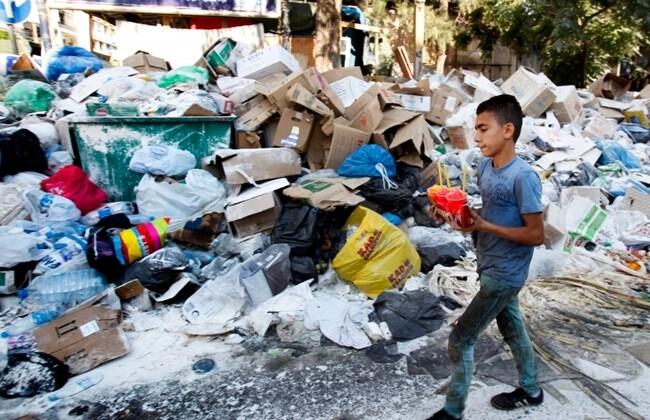Although the putrid odors emanating from festering trash piles may cause disgust and discomfort, the accumulating mounds of waste pose little biological threat themselves, said Dr. Iman Nuwayhid, dean of the Faculty of Health Sciences at the American University of Beirut. The rubbish heaps, however, are not without cause for concern, Nuwayhid added “One of the main issues, especially with organic waste, is that you’re going to have a good environment for mosquitoes and flies to really overpopulate,” he said. Both mosquitoes and flies are disease vectors, meaning they can spread certain illnesses. Flies in particular carry “dirt and germs” from one place to another and that may have an adverse effect on human health and hygiene. Moreover, the mounting trash attracts rodents, which can also spread diseases, Nuwayhid explained. The high temperatures Beirut is currently experiencing are likely to “enhance pest infestation,” added May Jurdi, a professor of environmental health at AUB. The presence of rodents, and their waste, increases the potential for food contamination, she added. While Jurdi agreed that the trash issue was unlikely to cause an acute public health emergency, he said the continued buildup of garbage in the streets could have secondary impacts on “the quality of the air … the issue of the quality of your water, of your food.” Of more immediate concern, experts said, is the burning of trash. “Sooner or later they’re going to start burning the waste,” Jurdi said, “which could deteriorate the quality of the air in Beirut.” Indeed, images are already circulating social media of massive trash piles set ablaze by fed-up residents. But according to the World Health Organization, burning trash can release hazardous toxins and chemicals into the air. A 2011 fact sheet issued by the United Nations organization warns that when burned some plastics produce toxic fumes which can impair liver function and cause skin lesions. Without strong winds or rain to flush the urban air, the summer climate may cause toxic pollutants to linger, Jurdi cautioned. Both Nuwayhid and Jurdi said that vulnerable populations, including young people, the elderly and those with pre-existing health issues, will be most severely affected by the trash pile-up and consequent incinerations. People with asthma or allergies, for example, may suffer from the deterioration of air quality. Salim Adib, an epidemiologist and public health expert, said he was more concerned about the lasting effects of Lebanon’s poor waste management strategies than any immediate health crisis. “How could we have left the issue of garbage to fester for so long without a real solution?” he asked. “My biggest concern is active contamination of the drinking water,” he added. If, over time, pollutants are introduced to water sources, Lebanese citizens could suffer serious long-term health effects, he said. Those who live in areas surrounding the controversial Naamehlandfill say they have been suffering serious health consequences from toxins dumped at the site, insisting that a number of residents stricken by cancer in recent years were victims of the dangerous waste. But Adib said it takes “a long time” for contaminants to cause serious diseases like cancer, adding that it was unlikely that the toxins would enter the food cycle, as no crops are grown near the landfill. While the public may not have to fear an imminent health crisis, Lebanon’s waste problem is not going away, Adib said. Elise Knutsen| The Daily Star











